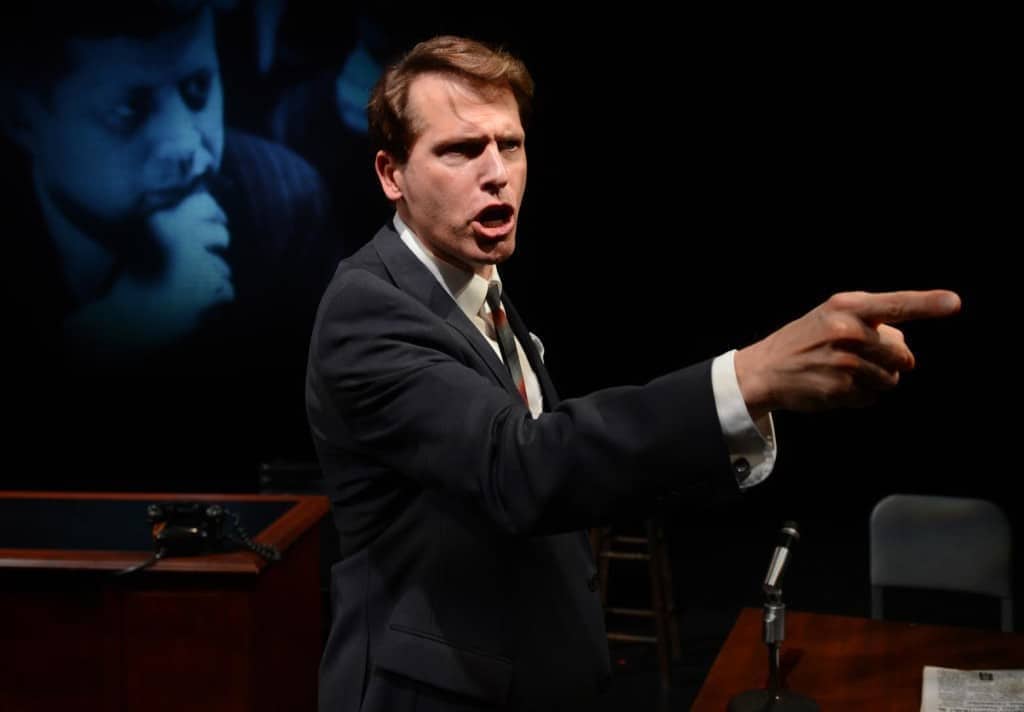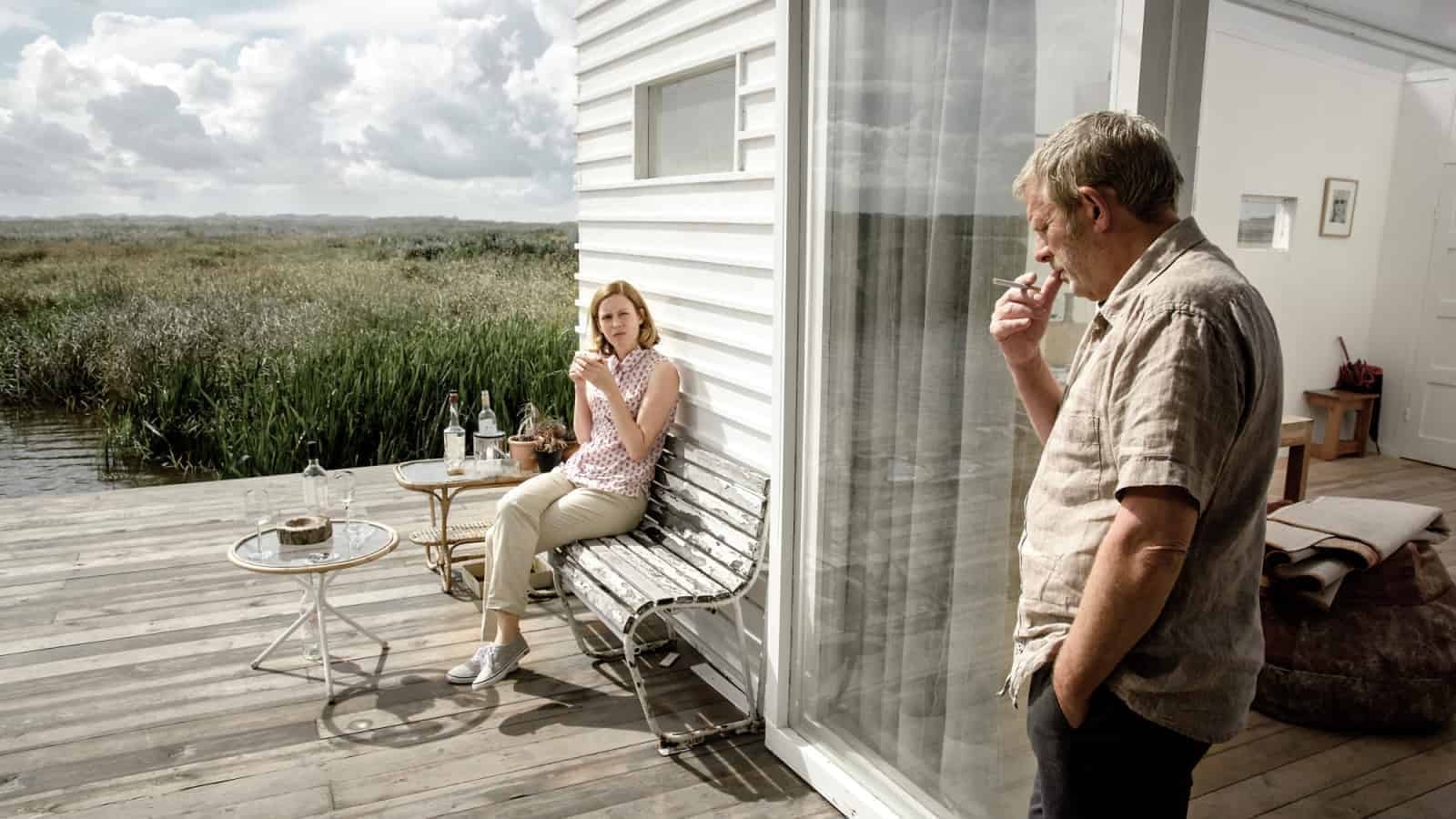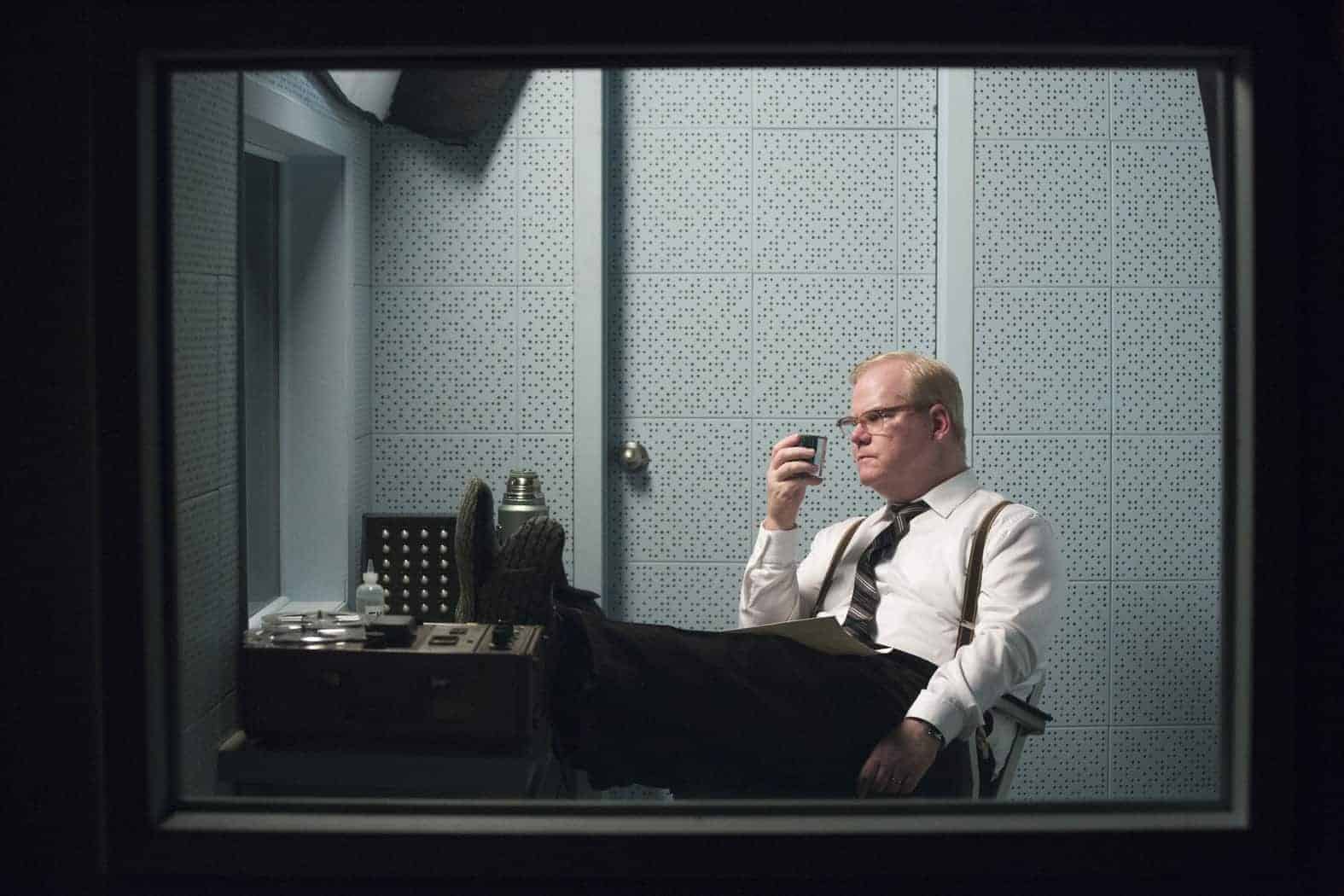San Jose Stage’s RFK, a one-man play about Robert Kennedy (David Arrow), combines a captivating lead performance with evocative projections to elevate a historically rich but dramatically flat script.
Read more about theatre on Seventh Row.

San Jose Stage’s RFK, a one-man play about Robert Kennedy (David Arrow), combines a captivating lead performance with evocative projections to elevate a historically rich but dramatically flat script. The most arresting moments come as drastic lighting shifts accompany milestone historic events, bringing the audience back to the 1960s. David Arrow’s phenomenal work embodying Bobby Kennedy holds our attention rapt throughout this two hour drama.
There’s nothing flashy or particularly climactic; the piece relies on history to create drama but doesn’t really hold up its own lens to the past. David Murakami, the projection designer, does his best to dress up the production with the black-and-white projections on the back wall. These depict the Kennedys, J. Edgar Hoover, Martin Luther King Jr., and Richard Nixon — along with brutal images from Vietnam and picturesque scenes from Hickory Hill (Robert and Ethel Kennedy’s residence). The edges of the images blur. The haziness opens a window to a faraway past. They’re incredibly helpful for connecting faces to the many names and events referenced throughout the play.
Because the set is so simple — a few pieces of furniture, no more, no less —the sound and lighting play a pivotal role in evoking and creating strong moments. In one poignant moment, the lights go red as Bobby learns of the 16th Street Baptist Church bombing. The lights effectively guide us everywhere, from the White House to Kennedy’s commercial shoot in his run for the Senate. When he is shot, we hear the sound of shots ringing out in the small, intimate theater; it’s jarring and effective.
The script does cover the key topics that defined RFK’s career: of poverty, civil rights, and Vietnam. But the script reads somewhat like a history highlight reel from 1963 to 1968. The important historical points are checked off without much additional perspective. Still, that time period was eventful enough —- it includes integration at the University of Alabama as well as JFK, MLK, and RFK’s assassinations — for it to remain interesting. In fact, for many audience members at the Sunday matinee, it was a walk down memory lane.
Nevertheless, Arrow’s performance is the play; he lifts the mediocre script, enlivens the perfunctory set, and brings history to life. From Arrow’s suit and tie to his spot-on accent and to his demeanor, everything he does convinces us that he is Bobby Kennedy. As Kennedy, he reacts beautifully to all the changes thrown his way, from his famous older brother’s assassination to seeing a young girl in New York whose face was partially chewed off by rats. His Bobby is self-aware and self-conscious, a family man who feels a duty to his 11 children as well as the underrepresented minorities in his country. In today’s context, it’s inspiring to see Kennedy vehemently fight for what he believed was right, even when it wasn’t popular. We believe in his idealism and remain with him to the inevitable end, his own assassination.
Director Randall King does great character work with Arrow but doesn’t add much dramatic rhythm. The play would be well served with beats to heighten and distinguish the tone of specific moments. We don’t have a strong sense of rising action or any climactic moments; the play sort of trails to an end in Kennedy’s post-assassination monologue. Despite its important content, the play often feels rote.
RFK is proof that a clear dramatic perspective — from both writer and director — is essential when recreating histories or biographies lest the production fall flat. It also demonstrates the power of design, and even more, of a great actor to hold an audience’s attention without necessarily performing the strongest play. As a history lesson, the show goes above and beyond, recreating some of the most important moments in recent American history while drawing out a portrait of an idealistic and hard-working man attempting to create change. Nevertheless, there were certain moments of brilliance in King’s production that kept me responsive to what could have otherwise been an underwhelming RFK.
RFK closes Sunday but there are still tickets available tonight and tomorrow.

